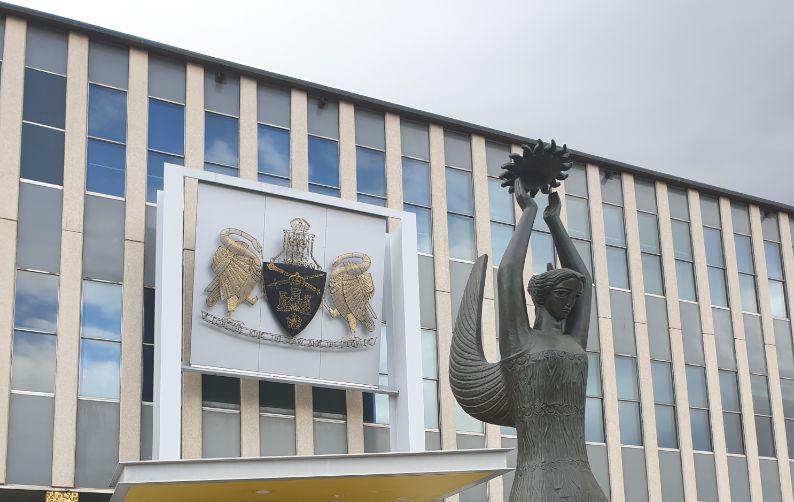Business, housing, waste collection, and education were among the topics debated in the Legislative Assembly’s third siting week for 2022.
Government motions
Not all Canberrans can easily afford or access the internet, Suzanne Orr MLA argued; she introduced a motion for the ACT Government to improve digital access and inclusion through its Imagine 2030 community co-design process on the future of libraries. For instance, families could borrow wireless internet devices from libraries so children could do their homework rather than sitting in cars outside libraries.
Greens MLA Johnathan Davis wanted the government to help set up workers’ co-operatives and other alternative business models, which he believes prioritise workers’ rights, deliver social goods, and could be more resilient in economic downturn, but have trouble securing loans from banks and raising capital. The government will establish a unit to help prospective co-operatives.
Canberra Liberal motions
Nicole Lawder MLA, Shadow Minister for City Services, wanted the ACT Government to continue weekly rubbish pickups for Canberrans unless they opted out of weekly pickups, and to introduce a recyclable nappy rebate scheme in the ACT. The government had announced that the food organics and garden organics, or FOGO, rollout would be accompanied by a reduction in garbage pickups from weekly to fortnightly, but Ms Lawder noted that some families were waiting for rubbish (including adult nappies) to be collected, while others worried about the smell from organic waste facilities. Chris Steel, ACT Minister for Transport and City Services, said the government would consider and address the needs of Canberra households that produced a large amount of waste, possibly including free bin upgrades, and would investigate better environmental options for nappy waste and report back by June 2023 (a year later than Ms Lawder wished).
Jeremy Hanson, Shadow Minister for Education and Higher Education, called on the ACT Government to stop funding cuts to public schools, and deliver 400 new teachers promised in the 2020 ACT election. According to the Productivity Commission Report on Government Services, Mr Hanson said, the ACT Government cut real expenditure per full-time equivalent student in public schools by 3.3 percent between 2010–11 and 2019–20, while Federal funding to schools increased by 42 per cent. A shortage of teachers led to overcrowded combined classes, while some schools did not have libraries, staff rooms, or needed technology. The motion failed.
Opposition leader Elizabeth Lee proposed a motion of no confidence in Yvette Berry, ACT Minister for Education and Youth Affairs, for failing to keep students, teachers, and school communities safe. Students at Calwell High School are studying from home due to assaults on teachers, and student mobs targeting other students. The motion failed.
Mark Parton, Shadow Minister for Transport, wanted the ACT Government to provide free public transport for six weeks, as Tasmania had done, arguing this would help families struggling with rising fuel prices and cost of living pressures. The motion failed. Mr Steel said that making public transport free would cost $1.85 million, that the Tasmanian scheme was unreliable, and that patronage of public transport was 34 per cent below pre-COVID levels.
Ms Lee called on the ACT Government to reframe their planned land release for the next five years to provide more options for mid-density and detached housing. The ACT Government’s Indicative Land Release Program shows that 70 per cent of the land for new housing will be for high density dwellings, 25 per cent for detached housing, and only 5 per cent for mid-density dwellings. The Liberals believe this approach restricts Canberrans’ housing choices, and lack of choice prices Canberrans out of the detached and mid-density housing markets. The motion failed. Mick Gentleman, ACT Minister for Planning and Land Management, said that density provided for affordable lifestyles with reduced transport costs and access to established services and facilities, while unchecked urban sprawl would increase emissions, reduce liveability and sustainability, require expensive new infrastructure, and destroy Canberra’s bush landscape.



